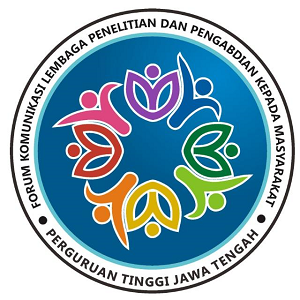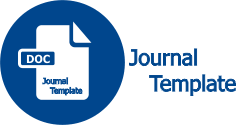INTEGRATED LEARNING IN DRAMA COURSE USING YOUTUBE
DOI:
https://doi.org/10.33061/rsfu.v5i1.4571Abstract
The purpose of this study was to explain and describe the application of integrated learning in digital-based Drama learning to 6th semester students at Slamet Riyadi University, Surakarta. This research is a qualitative descriptive study with a single case study type which only examines one research subject. The research subjects were students in semester VI in the English Education Study Program, Unisri Surakarta. This study uses the steps proposed by Miles and Huberman. The research location is in semester VI of the English Language Education Study Program, FKIP, Slamet Riyadi University Surakarta and in the central library of the Slamet Riyadi University Surakarta. The results showed that the application of integrated learning in digital-based drama learning was very good and interesting. This is also supported by four student language skills that are increasing, namely writing, reading speaking and listening. In addition, students are also increasingly able to cultivate creative power, cooperation between friends, foster sympathy and empathy, and self-confidence through drama scripts that they write themselves. They then played their work in front of the camera screen and uploaded it through YouTube social media so that the wider community could watch their role play. This is a challenge in itself for students and it makes them even more trying to give their best from the first stage, namely the process of writing drama scripts, practicing playing dramas, playing roles, and in the final stage they upload the results of playing these roles to YouTube social media. The effectiveness of integrated learning is reflected in the meaning of learning. Meaningful learning produces students who are active in a fun teaching and learning process, resulting in two-way communication between lecturers and students. Fun learning will run well if the lecturer has high creativity and has variations in the teaching and learning process so that the end result is that students can get good and meaningful learning achievements. Keywords: Integrated Learning, Drama Learning, Qualitative Descriptive, Case Study, YouTubeReferences
Alaye, Amarech and Wondimu Tegegne. 2019. Critical Review on the Meaning, Purposes and Techniques of Integrative Language Skills Teaching Approach. Journal of Literature, Languages and Linguistics. ISSN 2422-8435 An International Peer-reviewed Journal. Vol.58, 2019. DOI: 10.7176/jlll/58-03
Alasmari, Nasser and Amal Alshae’el. 2020. The Effect of Using Drama in English Language Learning among Young Learners: A Case Study of 6th Grade Female Pupils in Sakaka City. International Journal of Education & Literacy Studies, ISSN: 2202-9478, 2020,Volume:8 Issue: 1, DOI: 10.7575/aiac.ijels.v.8n.1p.61
Aydogan, Hakan and Azamat A. Akbarov. 2014. The Four Basic Language Skills, Whole Language & Intergrated Skill Approach in Mainstream University Classrooms in Turkey. Mediterranean Journal of Social Sciences MCSER Publishing, Rome-Italy, Vol 5 No 9 May 2014. ISSN 2039-2117 (online)
ISSN 2039-9340 (print). DOI: 10.5901/mjss.2014.v5n9p672
Barnet, Silvan et al. 1963. An Introduction to Literature. Boston : Little Brown Comp.
Baranova, Tatiana et al. 2019. Evaluation of Students’ Engagement in Integrated Learning Model in A Blended Environment. Education Sciences. 2019, 9, 138. DOI: 10.3390/educsci9020138
Doolan, Maria et al. 2019. The Benefifits and Challenges of Embedding Work Integrated
Learning: A Case Study in a University Education Degree Program. Australian Journal of Teacher Education Volume 44 Issue 6, June 2019. DOI: 10.14221/ajte.2018v44n6.6
Drs. Asep Herry Hernawan, M.Pd dan .Dra. Novi Resmini, M.Pd. 2016. Konsep Dasar dan Model-model Pembelajaran Terpadu. Tangerang Selatan: Universitas Terbuka.
Al-Gindy, Ahmed et al. 2020. Virtual Reality: Development of an Integrated Learning Environment for Education. International Journal of Information and Education Technology, Vol. 10, No. 3, March 2020. DOI: 10.18178/ijiet.2020.10.3.1358
Fatima, Sitti. 2019. Collaborative Learning Activities through MoE in Engaging EFL Learners and Diminishing their Speaking Anxiety. English Language Teaching Educational Journal (ELTEJ) Vol. 2, No. 1, 2019, pp. 39-49 E-ISSN: 2621-6485. DOI: 10.12928/eltej.v2i1.925
Harymawan, R.M.A. 1988. Dramaturgi. Bandung : CV. Rosda.
Hodam, Henryk; Rienow, Andreas Rienow and Carsten Jürgens. 2020. Bringing Earth Observation to Schools with Digital Integrated Learning Environments. Remote Sensing. 2020, 12, 345; www.mdpi.com/journal/remotesensing. DOI: 10.3390/rs12030345
Herman .J. Waluyo. 2009. Pengkajian Drama. Surakarta : Program Pascasarjana UNS.
Hou, Mingyi. 2019. Social media celebrity and the institutionalization of YouTube. Convergence: The International Journal of Research into New Media Technologies 2019, Vol. 25(3) 534–553. DOI: 10.1177/1354856517750368
Ithaca College. 2020. What is Integrated Learning? Diunduh dari https://www.ithaca.edu/icc/what_is_it/
Iwuchukwu, Onyeka. 2008. Elements of Drama. Lagos: National Open University of
Nigeria.
Nasution, Abdul Khaliq. R.. 2019. YouTube as a Media in English Language Teaching (ELT) Context: Teaching Procedure Text. Journal of Ultimate Research and Trends in Education Available online at: http://ojs.journal.unilak.ac.id/index.php/utamax Vol. 1, No. 1, March 2019, pp. 29-33. DOI: 10.31849/utamax.v1i1.2788
Nicolas Roman, S, and J.J. Torres Nunez. 2015. Drama and CLIL: a new challenge to the
teaching approaches in bilingual education. Bern: Peter Lang. ISBN: 978-3-0343-1629-3. 170pp. DOI: 10.3726/978-3-0351-0832-3
Nicole A. Buzzetto-More. 2014. An Examination of Undergraduate Student’s Perceptions and Predilections of the Use of YouTube in the Teaching and Learning Process. Interdisciplinary Journal of E-Learning and Learning Objects Volume 10, 2014, 17-32. DOI: 10.28945/1965
Nompula, Yolisa. 2012. An investigation of strategies for integrated learning experiences
and instruction in the teaching of creative art subjects. South African Journal of Education, Volume 32(3), August 2012. DOI: 10.15700/saje.v32n3a579
Muayyad Naji Ahmed. 2018. How English Language Learning Textbooks Develop Learners'
Communication Skills, Creative Language Production, Critical Thinking and Collaborative Learning. International Journal of Scientific Research and Management (IJSRM), Volume 06 Issue 01 Pages EL-2018-66-762018. Website: www.ijsrm.in ISSN (e): 2321-3418. Index Copernicus value (2015): 57.47, (2016):93.67. DOI: 10.18535/ijsrm/v6i1.el10
Pickering, James .H. and Jeffrey D. Hoeper. 1997. Literature. New Jersey : Prentice Hall.
Robert. K. Yin. 2002. Studi Kasus (Desain dan Metode. Jakarta: PT. Radja Grafindo Persada.
Sakkir, Geminastiti; Dollah, Syarifuddin; and Jamaluddin Ahmad. 2020. Students’ Perceptions toward Using YouTube in EFL Classrooms. Journal of Applied Science, Engineering, Technology, and Education Vol. 2 No. 1 (2020), 1-10. DOI: 10.35877/454ri.asci2125
Sugiyono. 2009. Metode Penelitian Kuantitatif, Kualitatif, dan R & D. Bandung : CV. Alfabeta
Sobarnas. 2009. Pembelajaran Terpadu di Sekolah. Diunduh dari http://sobarnas.com/2009/04/model-pembelajaran-terpadu-di-sekolah.html.
Srinivasacharlu, A. 2020. Using Youtube in Colleges of Education. Shanlax International Journal of Education, Volume: 8 Issue: 2 Month: March Year: 2020 P-ISSN: 2320-2653 E-ISSN: 2582-1334. DOI: 10.34293/education.v8i2.1736
Syofiani et al. 2019. Drama Appreciation Learning Using Multimedia to Develop Student Literation. Advances in Social Science, Education and Humanities Research, volume 301. DOI: 10.2991/icla-18.2019.111
Tri Widyahening, Ch. Evy. 2020. Kajian Drama : Teori dan Implementasi dengan Metode Sosiodrama. Surakarta: Yuma Pustaka.
Usakli, Hakan. 2018. Drama Based Social Emotional Learning. Global Research in Higher Education ISSN 2576-196X (Print) ISSN 2576-1951 (Online) Vol. 1, No. 1, 2018 www.scholink.org/ojs/index.php/grhe. DOI: 10.22158/grhe.v1n1p1
Uysal, Nuriye Degirmenci and Fatih Yavuz. 2018. Language learning through drama. International Journal of Learning and Teaching Volume 10, Issue 4, (2018) 376-380. DOI: 10.18844/ijlt.v10i4.766
Wajdi, Fathullah. 2017. Implementasi Project Based Learning (PBL) dan Penilaian Autentik Dalam Pembelajaran Drama Indonesia. Jurnal Pendidikan Bahasa dan Sastra, Volume 17, Nomor 1, April 2017, hlm. 81-97. DOI: 10.17509/bs_jpbsp.v17i1.6960
Downloads
Additional Files
Published
Issue
Section
License
- Hak publikasi atas semua materi informasi yang tercantum dalam situs jurnal ini dipegang oleh dewan redaksi/editor dengan sepengetahuan penulis. Pengelola Jurnal akan menjunjung tinggi hak moral penulis.
- Aspek legal formal terhadap akses setiap informasi dan artikel yang tercantum dalam situs jurnal ini mengacu pada ketentuan lisensi Creative Commons Atribusi-NonCommercial-No Derivative (CC BY-NC-ND), yang berarti bahwa hanya dengan izin penulis, informasi dan artikel Jurnal PKM dapat didistribusikan ke pihak lain dengan tanpa merubah bentuk aslinya untuk tujuan non-komersial.
- Setiap terbitan Jurnal PKM, baik cetak maupun elektronik, bersifat open access untuk tujuan pendidikan, penelitian, dan perpustakaan. Di luar tujuan tersebut, penerbit atau pengelola jurnal tidak bertanggung jawab atas terjadinya pelanggaran hak cipta yang dilakukan oleh pembaca atau pengakses.



















